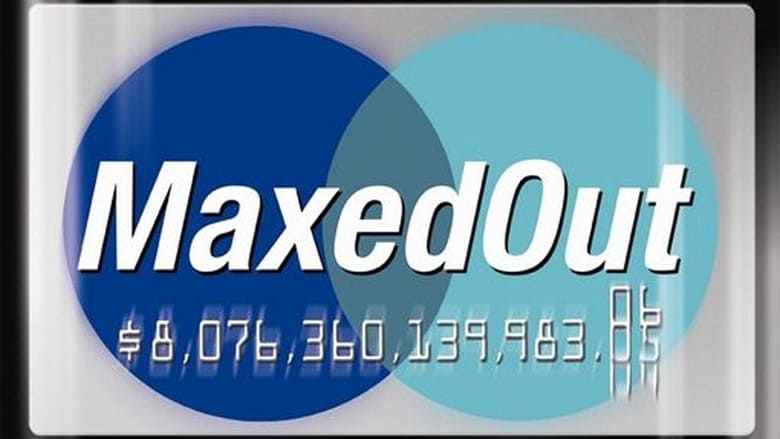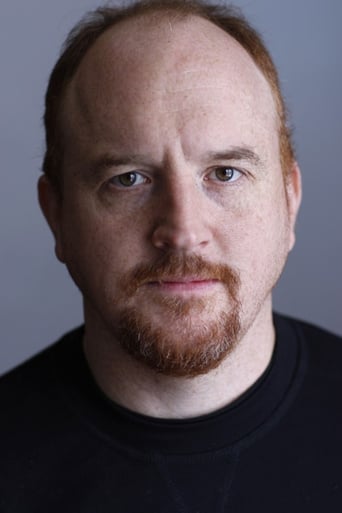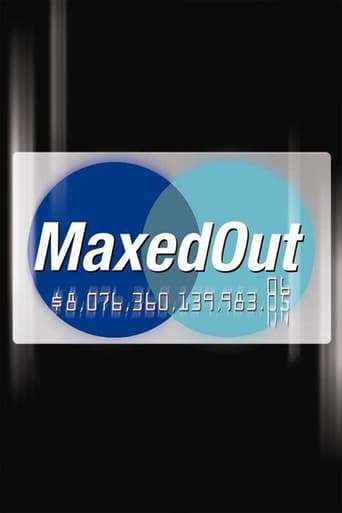
Maxed Out takes us on a journey deep inside the American debt-style, where everything seems okay as long as the minimum monthly payment arrives on time. Sure, most of us may have that sinking feeling that something isn't quite right, but we're told not to worry. After all, there's always more credit!
Similar titles
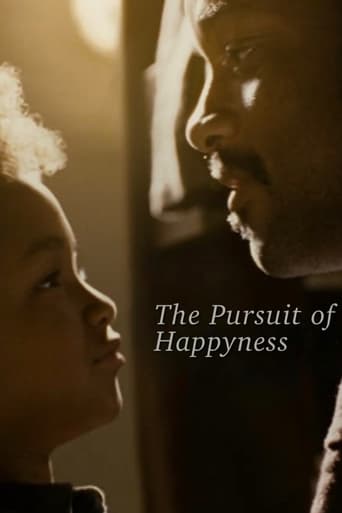
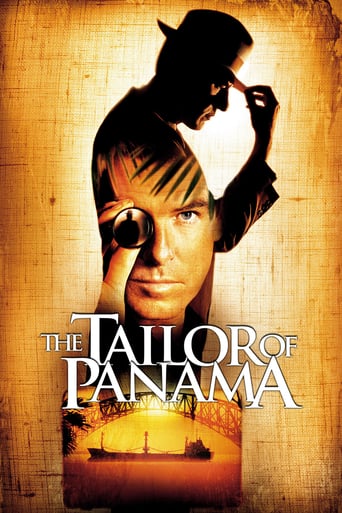
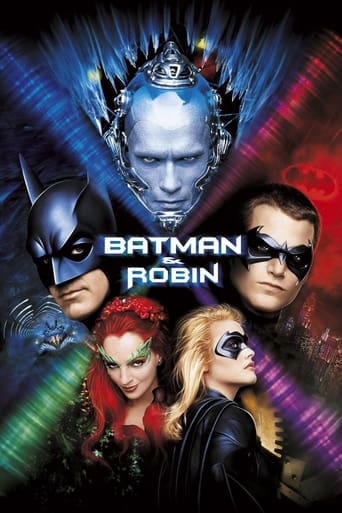
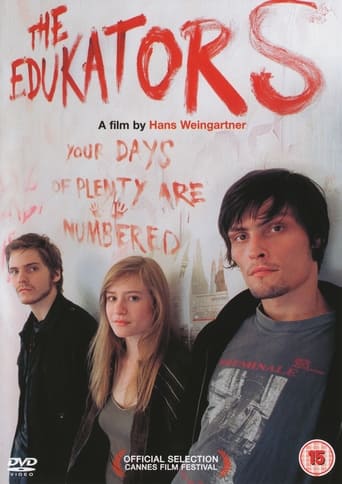
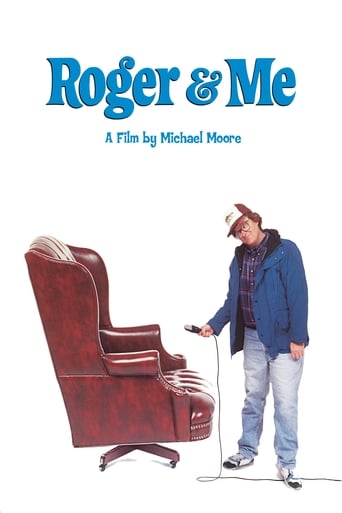
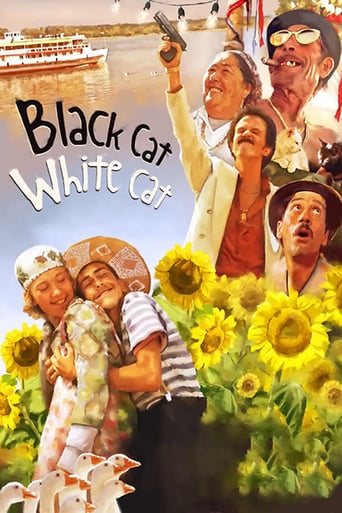
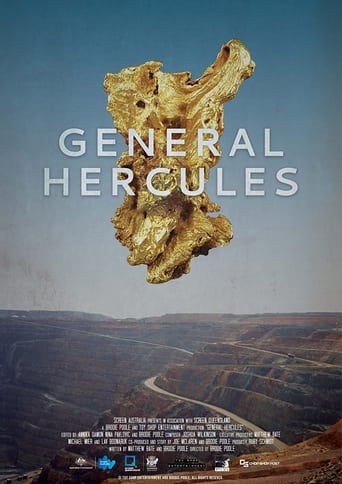

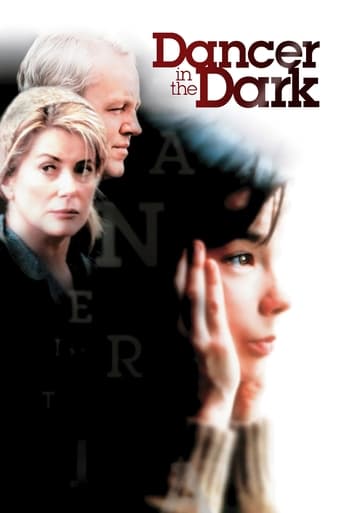

Reviews
Too much of everything
To me, this movie is perfection.
This story has more twists and turns than a second-rate soap opera.
Story: It's very simple but honestly that is fine.
While watching MAXED OUT, I got very angry - and, not at who most would think.I was angry at the people who maxed out - the people who 'bought' things (I put it in parentheses, as, anything that was purchased on credit wasn't actually owned by the buyer) way over what they could afford.A big problem with (American) society today, is since World War 2, the generations who have grown up, have not had to scrimp, and save. They didn't know what it meant to live during the Depression, when a lot of people lost everything.The plastic cash industry has removed the obstacles, and, deadened people's understanding of the value of things.I wished the film-makers had waited two years (the documentary came out in '06) - after the financial meltdown of '08. It would've added (much!) more fuel to this story.The film makers 'dumbed down' the story into the 'villains' (credit card industry), and, the 'victims/heroes' (American public, by in large), without really among up the fact that no one forces anyone to USE credit cards.They give some attention to saying that people need to take RESPONSIBILITY for themselves, with some clips from Suzy Orman, and such, but, for the. But for the most part, the people portrayed, are 'helpless victims.'A simple lesson most people don't realise, in this consumerist society, is: how do you think someone who has made huge amounts of money (and keeps it) does it? Let me make it clearer: (as an example) you'd never look at Bill Gates, and say; 'he looks like a billionaire.' he looks like... a nerd. Why?Because, he knows that it's not the dollar amount of things you have. I.e.; a pair of Keds will do the same thing as a pair of $200 Nikes. In other words, people are trying to have the APPEARANCE of wealth, and are missing the fact that, you need to WORK, and SAVE - NOT run out and buy something for it's supposed status.The credit industry - as any other industry - has one thing at it's heart: make MORE money, so, I can't fault them for doing what they do. No one 'makes' anyone 'get' a credit card (and, yes, you can live with credit, but, only of you use it prudently).People actually lived before them, and, when they had that tangible grasp on money, they lived within their means. It's the responsibility (a lot of people have trouble doing that) of each person to live within their means.And, with parents giving their kids whatever they want - including credit cards(?!?!), this generation is even LESS connected than their parents were.I say to people not jokingly, that World War 3 was already fought, and America lost, without a single weapon being used.How? To whom did we lose? The United States debt - thanks to that idiot Bush - has ballooned to the largest levels ever (and, say what you want abut Clinton, but, he paid off our debt). Who do you think we owe?The number one country? China.With our willingness to 'sign on the dotted line,' we owe China TRILLIONS. I'm not going to even discuss here how we've 'given' China our once tightly controlled high technology, for the purpose of being the manufacturing country de jour.I wish that people who see MAXED OUT will make their children watch it, as well. They will become the ones this generation has stuck with the bill.
Watched the news recently? Did you find out more about Tiger Woods' extramarital affairs and the concern about Obama's religion than about genuine subjects that concern you as an American, as a citizen of the planet, as a human being? Authentic journalism has just about vanished from TV in the past decade. Humorists Jon Stewart and Stephen Colbert more frequently carry out the task of speaking truth to power and holding leaders responsible than any supposed journalist currently. Accountability and outrage at power and status quo are still appearing on film: in theaters, from time to time, but more often direct-to-DVD sold mostly to, well, the outraged, the informed, those who want to stay informed.Writer-director James Scurlock, himself a financial adviser, records and recounts vicious procedures in the credit industry. He uses interviews with creditors, debtors, academics and everyday Americans who've been victimized by the process. His wants to increase recognition and knowledge of how credit and lending issues are shaping society. His key assertions are that banks and other creditors calculatingly target people more liable to have trouble paying and that the creditors profit from links to government, the debt collection industry, and from lawmaker lack of concern.This film released a few years ago now, when evidently low-interest government-subsidized mortgages were replaced by companies like Citifinancial with loans many people couldn't afford. The "ethics czar" Bush appointed to "clean up" corporate America was a director of Providian, which had not long before defrauded its customers of roughly $400 million. The corrupt politicians and campaign contributors rely on the lack of full understanding of people, like me, when it comes to finances and business terminology. But you can be rusty or inexperienced in those matters and still fully understand how they've raped us for at least thirty years.Scurlock's answer to all the optimistic economic news the mainstream media inundated us with at the time of its release---stock market and corporate earnings are booming!---and looking where we are now, is a gloomy rendering of loan scams that misinform even intelligent, well-informed people and a credit card industry calculated, with government support, to run counter to everyday consumers. Within ten years, over ten million declared bankruptcy. In 2004, thirty states sued the banks for predatory and unfair practices. The Bush administration's top regulator rushed to whose defense? The banks'.In regards to Bush's failure to be a trustworthy, honorable, even respectable leader, the information never ceases. For his second term, his top campaign contributor was the country's second-largest credit card issuer. Within a few months, Bush endorsed a bill making it much harder for middle-class Americans to get a second chance when paying off their debts. Guess who wrote the bill? His top campaign contributor. That year, more of us went bankrupt than those of us who graduated college.But Maxed Out isn't just another railing against Bush. It dates back for all necessary context. It summarily chronicles that Reagan used billions from Social Security to pay interest on the national debt. Then Bush 41 took even more billions from the Social Security trust fund and replaced it with IOU's. Then the government ran out of money anyhow and shut down, so Clinton used billions from pensions and Social Security to prevent defaulting on interest. Fast-forward to the middle of George W. Bush's 8-year reign, when the government ran out again, and Bush raised the debt limit by $800 billion. Within a year, the federal government had spent every cent of the Social Security "trust fund," just to cover smaller expenses.I often gripe about people who fume about Obama's protracted handling of the 2008 economic downturn after they supported Bush's spending of $10 billion a month on average for his now famously dishonest and wasteful war, but here I learn his administration actually spent more on interest than on homeland security, education and healthcare all put together. In a time when the government's actually trying to monitor corporate power, the majority wants to restore all corporate power. Never mind that they're unequivocally the ones who drove us into depression. Or that one of the fastest-growing industries on Wall Street is buying debt. They've successfully consumerized us to the point where we feel we just have to blow our wads on luxury we know we can't afford. We keep pathologically trusting the wrong people because they know what words make us feel self-satisfied. When Bush talked about issuing a "fiscal straitjacket," he made it sound like it was a way of restricting Congress from reckless spending. But really---big shock---it was a handy excuse to remove government programs that didn't profit higher-ranking taxpayers and corporations.There's a case to be made that films like this preach to the converted, but no one finds fault that tax-exempt mega-churches preach to the converted, and these kinds of films are at least making steps to satisfy an informative role the corporate media snubs. Besides, there were certain fine points stated directly in this film that I didn't know, that maybe I should've. For instance, I didn't know that the number-one qualification required to work at a bank is selling experience. If these films are "biased" toward a liberal or progressive stance, they still cannot expect to offset the virtually inescapable right-slanted corporate monotony. The trouble's this: When there were just three channels and Murrow discredited a Senator's hate campaign, everyone knew about it. When you have to be alerted to independently produced DVDs giving you another side of the story so as to realize that there's another side to the story, you wonder what the drawbacks are of mass media targeting subgroups for their specific interests. People only really want to pay attention to the media paying attention to them, and agree with the worldview they're too complacent to think too hard about. I'm waiting for Maxed Out 2: The Obama Years.
OK, I want to say how horrible it is that the two college kids from this film took their own lives and my heart goes out to their family. But honestly this film can be summed up by one word, choices, that is what all these people made, choices. They chose to get credit cards, they chose to use them, they chose to spend money they didn't have and I don't want to sound heartless but they chose to end it all. I'm sorry but when I have recently watched documentaries on Darfur, 9/11, the Iraq War and Catholic Priests abusing children it's hard for me to feel sorry for people with credit card dept of their own choosing. All those other documentaries focused on people who's situations were forced upon them by life circumstances, these people brought it all upon themselves. Then the film tries to make rich people out as the bad guys, to me rich people are in this case the smart people, they can actually afford the things they buy and they do live within their means. It's the middle class that always wants more and more stuff, which there are two things wrong with that, one they buy things they want and can't afford and in most cases don't need and won't really use. Two, they are not willing to earn the money it takes to buy those things before they buy them. People need to decide first what things are really important for them to have in their life and then decide how much money and what job they will need to be able to afford that life. Problem being, everyone would want to have everything but few are willing to work hard enough to afford that. My other question, when they are interviewing these people they live in houses filled with stuff, hello! Show me the person living in an empty apartment with the electricity turned off with a pillow and a blanket complaining about his dept then we might talk. So the bottom line as I see it is, the real problem is why do we all want so damn many things.
Maxed Out is a film that takes you in and insists you pay attention to every word. The movie is very good at conveying the gravity of the situations at hand, whether it be the national debt or the individuals in crisis. The movie follows the most basic rule of a narrative, to show and not to tell. The movie turns the camera to those who have been affected, and lets them vent. The professor from Harvard, Elizabeth Warren, is very effective, her quiet voice makes you feel as though you are listening to a secret and you lean in to hear.The one fault I found with the film is that at certain points the interviewer would make a suggestion to the interviewees and the interviewee would reiterate the suggestion. I didn't take off any points because I think the suggestions made were simply to better fit the narrative and didn't fundamentally alter any of the interviews. Also I felt the documentarians did the honest thing and included the suggestions unedited.Maxed Out shows the dark-side of a "boring" topic in a very interesting way, no one will leave this film unaffected. 10/10
Top Streaming Movies











